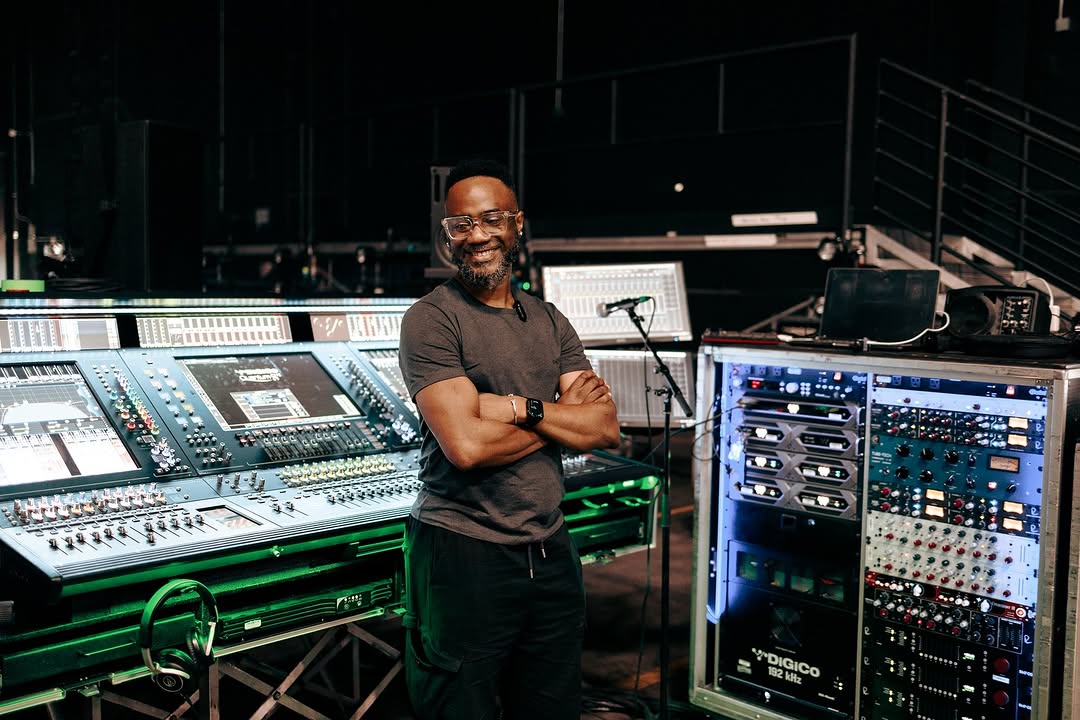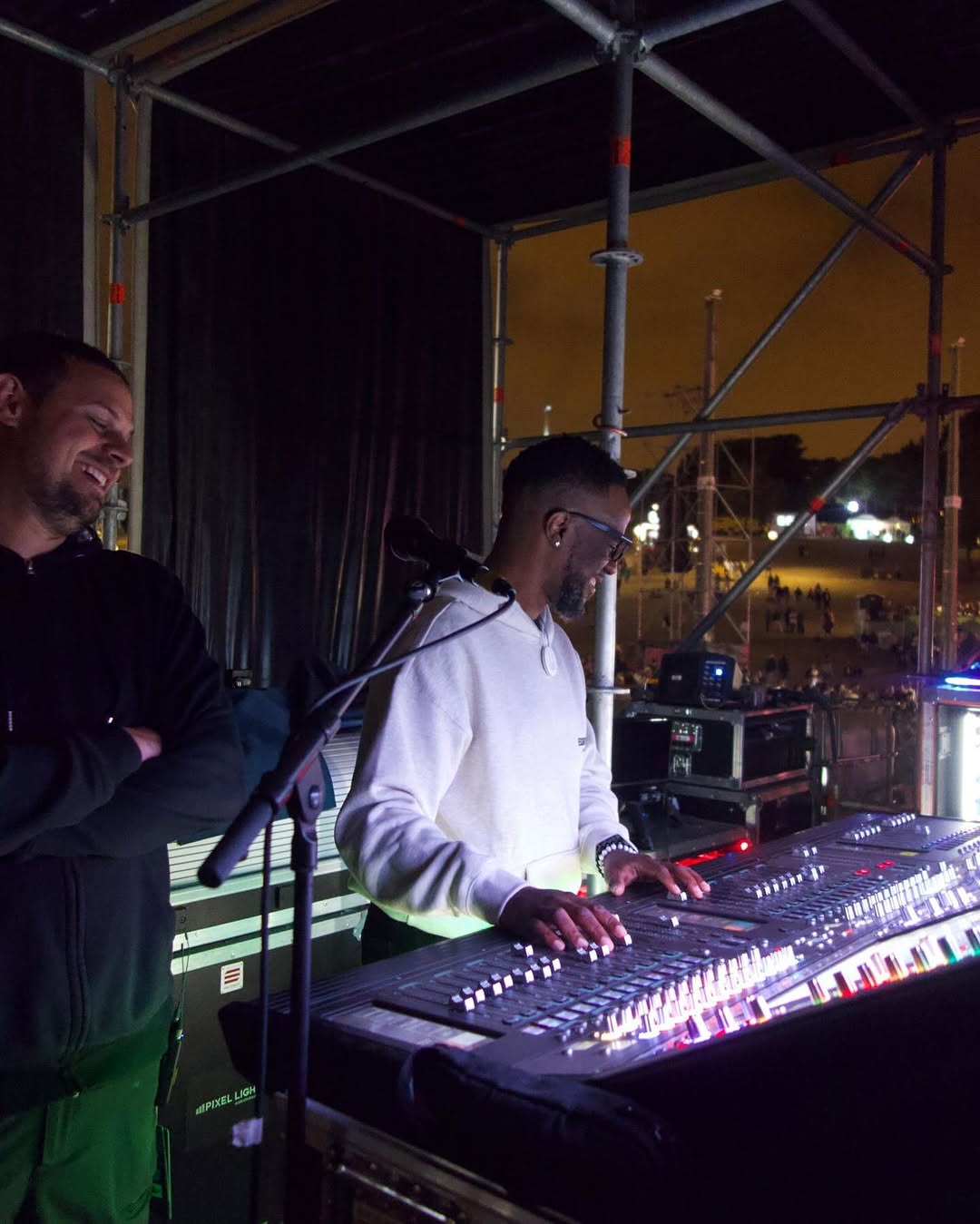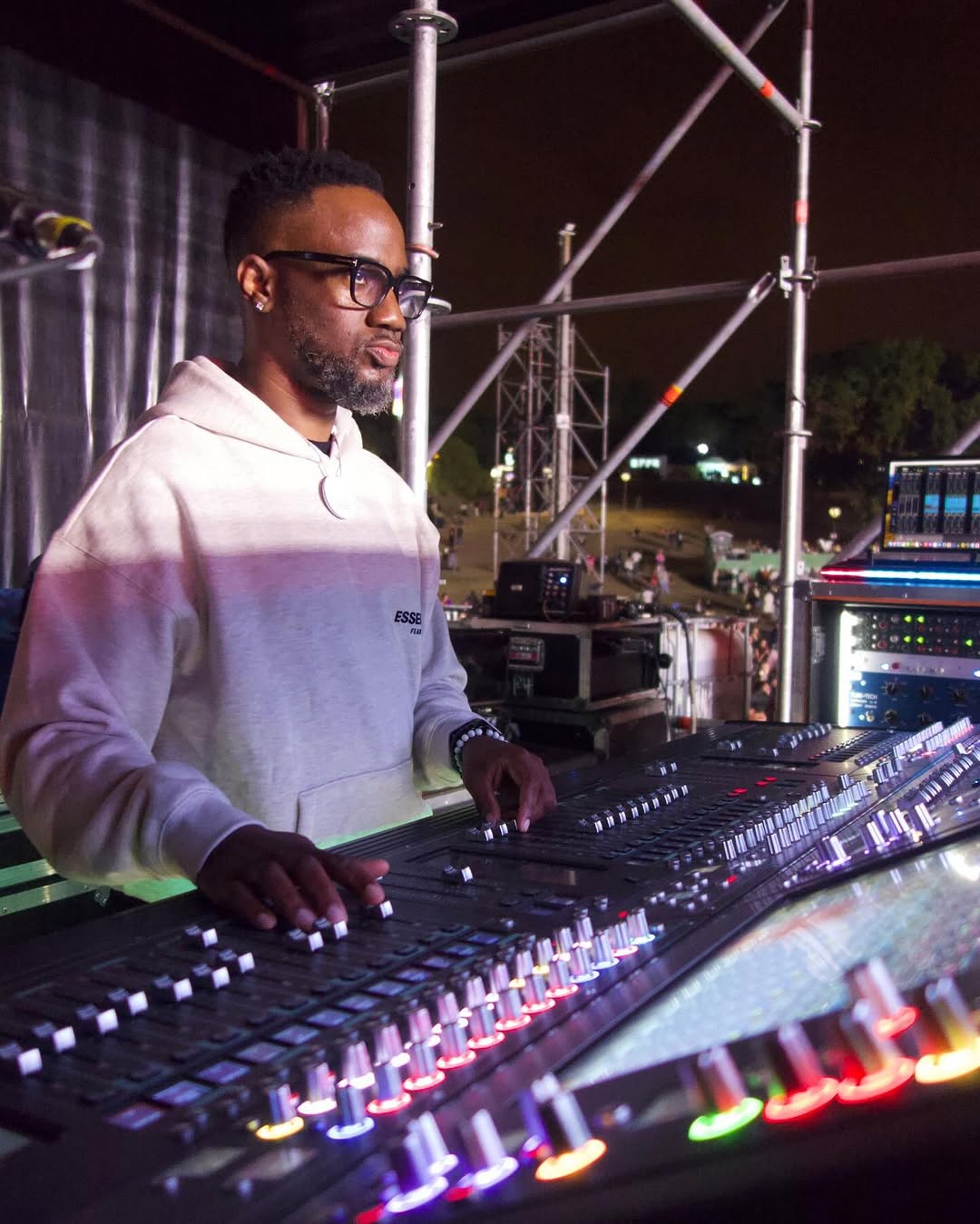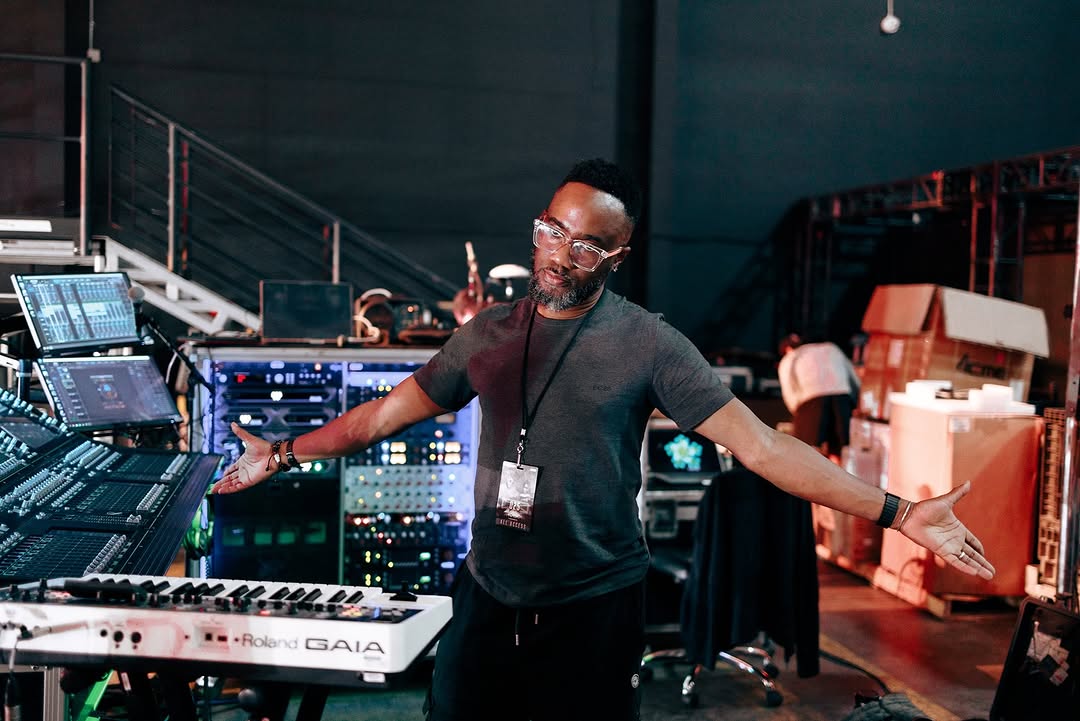Temidayo Oladehin Discusses What Makes a Live Music Performance Iconic in Today’s “Doing Life With…”
Doing Life With… is a BellaNaija Features series that showcases how people live, work, travel, care for their families and… everything in between. We are documenting the lives of all people and ensuring everyone is well-represented at BN. Throughout the month of March, we are aiming for the series to be all-women.
Our last conversation was with Fola Folayan. Did you miss it? You can catch up here.
This week, we’re doing life with Temidayo Oladehin, a Nigerian-born sound engineer and music producer, currently serving as the Production Lead and Front-of-House (FOH) Engineer for Grammy Award-winning artist Burna Boy. In this role, he oversees live sound production, ensuring high-quality audio experiences during performances. Enjoy the conversation!
Hello Temidayo. How are you doing?
I’m doing well; thank you for asking. I’m always grateful for the opportunity to grow, create, and collaborate with others—especially in a space as vibrant and evolving as music and live production.
Can you share a bit about your background—your upbringing, education, and any key moments from your childhood that shaped you into what you are today?
I was born and raised in Lagos, Nigeria, and went to the University of Calabar, where I studied Pure and Applied Chemistry. After I moved to the UK, I went to the University of East London, where I studied for another Bachelor’s degree in Multimedia Design Technology and Business Management. After this, I obtained a master’s degree in Business Management at the University of Essex and a master’s in Media from Canterbury Christ Church University.
I grew up surrounded by music—both at home and in church, where I first connected with sound and performances. I remember my dad coming home with a Denon vinyl player, and I had two types of music I’d listen to–this is crazy, right?–my church’s Ayo ni records and Fela Kuti. I’d definitely say this is what shaped my love for music and got me to where I am today.
Everything starts somewhere, and according to your interviews, like most artists, your first encounter with music started at the church. Where and when exactly did you realise you were going to build a career in music?
I always say it started in church. As you can imagine, I was born in an African home with a dad who was a renowned chartered accountant who never wanted me to have anything to do with music. That’s how I ended up studying Chemistry, even though the goal was to become a Petrochemical engineer. But music always chose me.

You’ve witnessed several live performances and engineered many of them. As an engineer, what makes a live performance iconic, considering that that is always the goal?
An iconic performance is one where everything aligns—emotion, sound, energy and timing; from the performer’s passion to the clarity of the mix to how the audience connects in real time. Technical perfection is great, but it’s really about moments—when the crowd sings along, when the artist breaks character and smiles, when silence hits just right. As an engineer, your job is to protect those moments and elevate them.
We know Burna Boy’s live performances are highly energetic, and the sound quality is always unmatched. What makes each show sound just right, and what is one simple thing that can literally pull off an entire live performance?
Preparation. It starts way before the crowd shows up—system checks, soundchecks, rehearsals, backups for the backups. But what is the one simple thing that can make or break a show? Communication. Between front of house (FOH), monitors, the artist, stagehands—everyone. A good comms system and a culture of respect among the crew ensures the show runs like a living organism. You will be shocked how much we spend on communications.

Haha. Apart from the equipment, I am always curious to know where else technology has seeped into music, especially with live performances. How has technology improved the way you work, from sound engineering to live production?
Technology has changed everything. Digital consoles, virtual soundchecks, wireless setups, real-time analysis tools—they’ve all made it possible to work faster and smarter. But even beyond gear, tech now allows collaboration across borders, faster troubleshooting and even AI-assisted mixing. It’s not just about the tools—it’s how you use them to enhance human creativity and control chaos.

What’s one mistake you made early in your career that taught you a valuable lesson?
Trying to do everything alone. I used to think that asking for help meant weakness or lack of skill. But live production is a team sport. Delegating, trusting others, and learning to communicate clearly are all part of growing as a professional.
Many creatives struggle with the business side of their work. What’s your advice for balancing passion with professionalism?
Structure your passion. Build systems. Whether it’s setting financial goals, signing contracts, or following up on invoices, don’t leave it to vibes. Be honest about what you love but also about what it costs. The more organised you are, the more freedom you give yourself to create without burning out. I say to my kids, no matter your choice of career, make sure to take a course in Business management. Don’t have passion and be broke.
What does a typical day in your life look like?
Every day is different, but usually, it starts with quiet reflection or planning, just to align mentally. Then I dive into whatever’s on the plate: meetings, reviewing production riders, coordinating logistics, rehearsals, tech setups, and sometimes late-night troubleshooting. When I’m not on the field, I’m studying, new gear, old mixes, or just learning from others in the industry. And somewhere in between, I make time for family and Arsenal, lol.

If you could remove three things from your life right now, what would they be and why?
That’s a hard one o. But, I’ll tell you one:
Clutter–physically or mentally. I’ve learned that clarity in your environment helps clarity in your craft.
If you could have dinner with any three people, dead or alive, who would they be and why?
Jesus Christ, my saviour and my Lord, I have plenty of questions, sir. Fela Kuti, for his fearless voice and deep connection to African sound and resistance. My future self, because sometimes you need to see where you’re headed to appreciate where you are.
Thank you for being on Doing Life With…, Temidayo
Thank you for having me.
__
Many thanks to Temidayo Oladehin for having this conversation with us and answering all our questions – and swiftly too, we must add.
Do you love this content, have any feedback for us or want to be a BellaNaija Features contributor? We’d love to read from you. Shoot us an email: [email protected]. Join us on Saturday for the next episode!
Crédito: Link de origem


